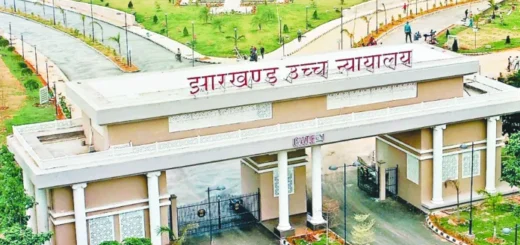The Supreme Court has stated that clauses for appointing a unilateral arbitrator in public-private contracts violate Article 14 of the Constitution.

The Supreme Court ruled that clauses allowing one party to appoint an arbitrator in public-private contracts violate Article 14 of the Constitution. This decision came from a civil appeal where the Court examined the independence and impartiality of Arbitral Tribunals under the Arbitration and Conciliation Act, 1996. The five-Judge Bench, including CJI D.Y. Chandrachud and Justices Hrishikesh Roy, P.S. Narasimha, Pardiwala, and Manoj Misra, stated, “A clause permitting one party to unilaterally choose a sole arbitrator raises valid concerns about the arbitrator’s independence and impartiality. Additionally, such a clause limits the other party’s equal involvement in the arbitrator selection process. … Therefore, unilateral appointment clauses in public-private contracts breach Article 14 of the Constitution.” The Bench emphasized that equal treatment of parties must be upheld throughout all arbitration stages, including the appointment of arbitrators.
The A&C Act imposes certain essential principles on party autonomy, such as equality, independence, and fairness in the arbitration process. The Constitution Bench addressed the balance between party autonomy and the need for an independent and impartial arbitral tribunal. The Law Commission of India, in its 246th Report, noted that party autonomy should not override the principles of impartiality and independence, especially when forming an arbitral tribunal. Consequently, the Law Commission recommended automatic disqualification for individuals whose relationships with the parties fall under specific legal categories. Following these recommendations, Parliament passed the Arbitration and Conciliation (Amendment) Act 2015, which included Section 12(5).
Section 12(5) states that anyone connected to the parties in certain ways listed in the Seventh Schedule cannot be appointed. After the 2015 amendment, parties submitted applications under Section 11(6) to challenge appointment processes that favored one party in choosing arbitrators. In July 2023, Attorney General R Venkataramani reported that the Union Government had set up an Expert Committee on Arbitration Law, led by Dr. T K Viswanathan, to review the A&C Act’s provisions. He noted that the issues raised would be addressed by this Committee. In January 2024, the Constitution Bench allowed three months for the Union Government to assess the Committee’s recommendations. By April 2024, the Court learned that the Government had not acted on these recommendations, prompting the Constitution Bench to proceed with the final hearing.
The Supreme Court faced the following questions:
a. Is it legal for a process to let a party with a stake in the dispute appoint a sole arbitrator or create a panel from which the other party must choose their arbitrator?
b. Does the principle of equal treatment of parties apply when appointing arbitrators?
c. Does a process in a public-private contract that lets a government body appoint a sole arbitrator or most arbitrators violate Article 14 of the Constitution?
The Court pointed out that there is a real risk of bias when an arbitration clause allows a government company to appoint a sole arbitrator or control most of the arbitrators. This control means the government can influence the arbitration process to the disadvantage of the other party. As a result, these unilateral appointment clauses do not serve as a proper alternative to judicial proceedings in India. Additionally, such clauses are exclusionary and go against the principle of equal treatment and fairness for all parties involved.
The Court explained that unilateral appointment clauses in public-private contracts do not meet the necessary standards of integrity expected from authorities in quasi-judicial roles like arbitral tribunals. Therefore, these clauses contradict the fundamental principle of arbitration, which is to resolve disputes impartially. They also breach the nemo judex rule, which is part of India’s public policy regarding arbitration. Consequently, these clauses violate Article 14 of the Constitution due to their arbitrary nature and infringe upon the equality principle outlined in the Arbitration Act. The Court further noted that at the Section 11 stage, a referral court only needs to confirm the existence of an arbitration agreement, while the validity of the arbitration clause regarding the appointment of arbitrators requires a thorough examination of evidence and legal findings.
The Court stated that the arbitral tribunal should decide this matter based on the competence-competence principle, which allows it to determine its own jurisdiction, including the validity of the arbitration clause concerning the equality principle under the A&C Act. It noted that the Arbitration Act does not prevent public sector undertakings (PSUs) from selecting potential arbitrators. However, an arbitration clause cannot require the other party to choose its arbitrator from a PSU-curated panel. Requiring the other party to select from a specific panel for a three-member panel goes against the principle of equal treatment. This creates an imbalance since the parties do not have equal involvement in appointing arbitrators. The Court found that the appointment process in CORE is biased in favor of the Railways. It also concluded that the principle of express waiver in Section 12(5) applies when parties want to waive claims of bias against an arbitrator chosen unilaterally. After disputes arise, parties can decide if they need to waive the nemo judex rule, and the legal principles established will apply to future arbitrator appointments made after the judgment date.
Cause Title: Central Organisation for Railway Electrification v. M/s ECI SPIC SMO MCML (JV) A Joint Venture Company (Neutral Citation: 2024 INSC 857)









